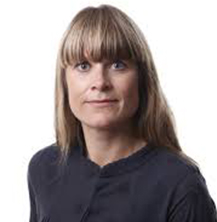Rethink your leadership success criteria in times of crisis

Photo: Shutterstock
The Covid pandemic. War in Ukraine. Natural disasters. Floods of refugees. The Nord Stream gas leak. Crises and catastrophes emerge one after the other and make two researchers argue that the strategic skills of public leaders must be enhanced in times of crisis.
”We used to say that the world was complex and unpredictable. Today, a lot of things suggest that it really is. The degree of complexity recurs in relation to the leadership challenges, most of all because a crisis cannot be solved by one single organisation. So, we are looking at entirely new demands for collaboration and coordination that public leaders need to handle,” says Anne Roelsgaard Obling, Associate Professor at the Royal Danish Defence College.
Together with Thomas Lopdrup-Hjorth, Associate Professor at CBS, Obling will teach a new course in the Master of Public Governance programme: Strategic Crisis Management: Collaboration and security in times of uncertainty.
Thomas Lopdrup-Hjorth points out the necessity for leaders to act before the crisis as well as during the crisis.
"We cannot freeze, we need to act. The costs of not acting may exceed the costs of acting, so it is crucial for public leaders to be able to change their success criteria,” he says and elaborates
”We tend to think success like this: If a crisis occurs, it is bad. If it does not, it is good. However, this way of thinking is not very useful. We cannot avoid all crises or prevent everything from happening. With that, it is no longer a question whether something is good or bad, it is a question whether the least bad can be the best in each situation. Crises require completely different views on success than we are used to, and leaders need to become aware of those. And clearly, it is important to be able to communicate and demonstrate psychological resilience.”
Expand the security agenda
Anne Roelsgaard Obling points out that crises require collaboration across the public sector – and across the public and private sector.
”Traditionally, we talk about managing up and down in an organisation. In times of crisis, it must take place across the organisation because crises often go beyond the organisation itself. Horizontal leadership is challenging. You need to coordinate, synchronise and be really clear in terms of roles and responsibilities. We have a lot of collaboration experience from the Covid pandemic. It is time to draw on it now, she says.
The two teachers wish to expand the security agenda.
”This could for instance be part of a greater societal responsibility – that civil society also becomes a part of the security agenda,” says Anne Roelsgaard Obling and points to the fact that other Nordic countries are markedly more structured in this area than Denmark. When the Russians annexed the Crimea, Sweden reached out to the citizens, she explains:
”School children were told what to do if the Russians came closer to Sweden, and the food industry was heavily encouraged to contribute if the crisis should occur.”
The comprehensive security agenda also means that the two teachers encourage leaders across the public sector to consider boosting their strategic leadership competences. This could be leaders in the defence, police, at the hospitals, supply sector but also leaders in municipalities that form part of a larger contingency.
The security paradox
According to Thomas Lobdrup-Hjorth, some security efforts may seem cost-intensive because they imply preparing for something which hopefully will not take place.
”But things that may look expensive in times of peace can suddenly become fundamentally important,” he says and underlines that historically, the most important task of a state is to provide safety and security. However, some agendas may overshadow this core task.
”New public management is a great tool to make workplace processes more efficient. It is about removing what seems expensive or unnecessary. But when it comes to security and preparedness, things may often look very expensive, but we do not always realise how the money is spent,” he says.
Thomas Lopdrup-Hjorth exemplifies: The purpose of an intelligence service is to prevent terrorism. You investigate and get on the track of some people. They get a hunch and draw in their horns. The crisis has been averted, but the public does not know and neither how the money is spent.
”Cutting budgets until something happens is a paradox. We also had this debate in the wake of the tragic event in Fields; The psychiatric system is under pressure and politicians want to allocate more money for this area. As a leader, you should be aware of this significant paradox,” he says.
Read more about the course ‘Strategic crisis management: collaboration and security in times of uncertainty. The course is offered in Danish.

